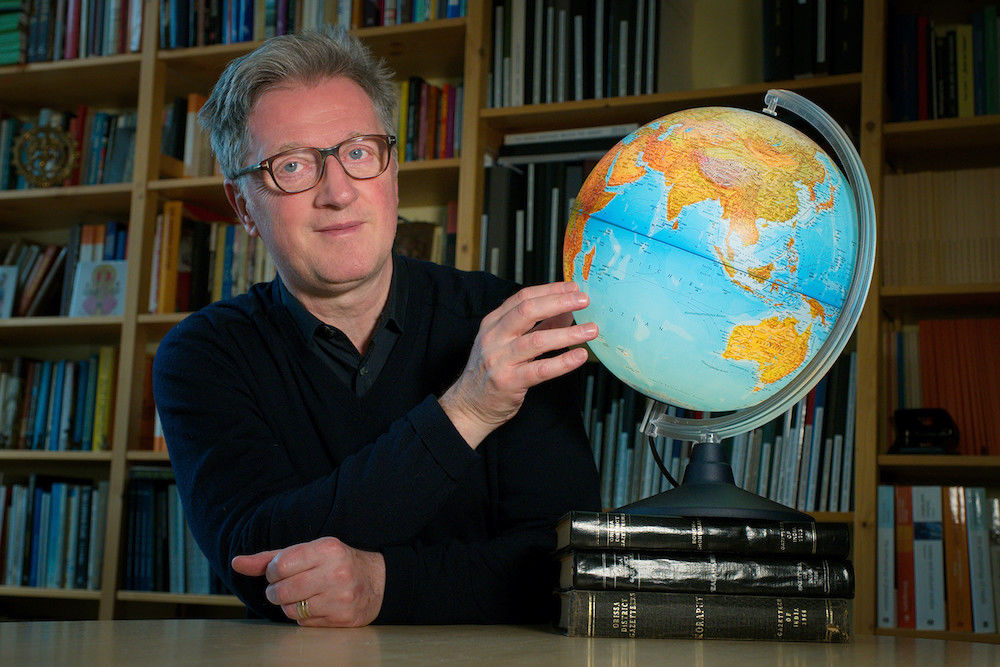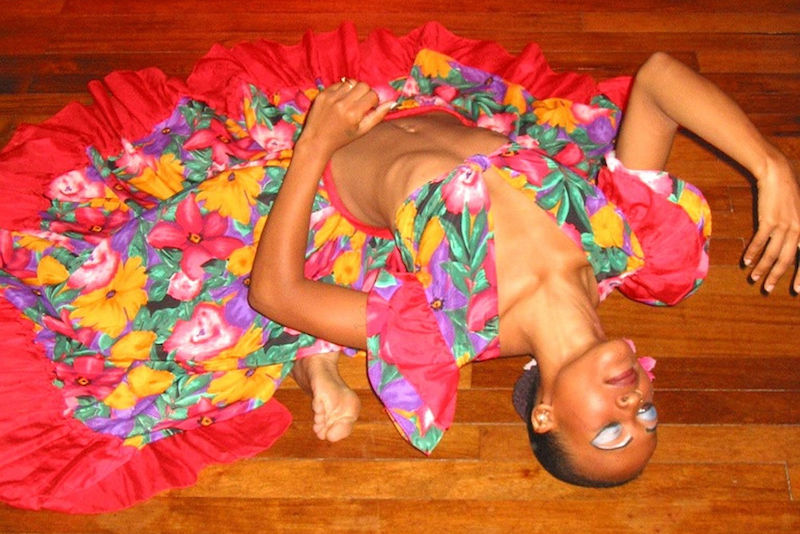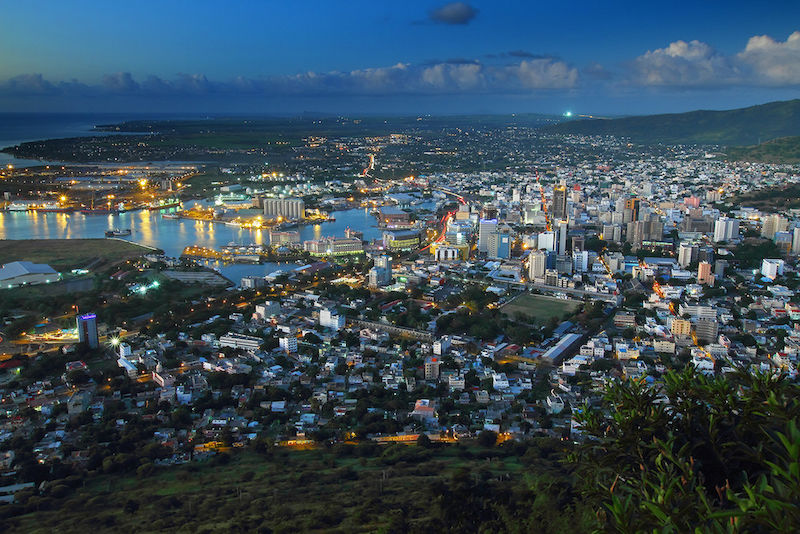Indian Ocean Studies: ideas that travel

Burkhard Schnepel has a broad area of research: the Indian Ocean, which is spread across nearly 70 million square kilometres. It covers around 15 per cent of the world’s surface, connecting Africa and the Arabian-Persian world with India, Indonesia, Australia and countries in the Far East, including China. In between lie many islands and groups of islands with melodious sounding names that conjure up images of holidays: Madagascar, the Seychelles, Mauritius, the Maldives and Sri Lanka.
Parts of the Indian Ocean have been frequented for around 5,000 years. Once seafarers were able to unmask the secrets behind the inevitable recurrence of the monsoons, a weather phenomenon typical for the region, sailing in the Indian Ocean became more predictable. Sailing vessels were able to conduct trade between the coasts and islands connecting the three continents. The Indian Ocean is the oldest ocean in the world from a seafaring perspective.
From small to large
Schnepel readily explains what excites him so much about such a large research area. “It’s the complexity. Understanding the region as a whole and its historical depths,” he remarks. How is it possible to research a field that is, in many aspects, so heterogenous? Thanks to many individual social-anthropological and ethno-historical microstudies, small insights are generated that can be joined together to form a larger picture. Projects are tackled from two directions: through empirical microstudies and by striving to understand the big picture in its historical depth and spatial breadth. Conditions and changes can be characterised through many individual projects. Like puzzle pieces, these findings should fit together to form an overall picture of the historical changes, as well as the continuities.
“The historically based trading relations that still exist today are of primary interest to the research conducted by me and my colleagues,” says Burkard Schnepel. This phenomenon has been captivating the ethnologist for years. He grew up on the North Sea and knows that the old saying of “mountains divide while seas connect” more than applies to his area of research. After all, maritime trading has made a crucial impact in the regions surrounding the Indian Ocean.
The phenomena that are being investigated vary just as much as the area under investigation. For example, the food and culinary habits in the former British colonial city of George Town on the Malaysian island of Penang can be the subject of research as can the local understanding of democracy on the Maldives. It should be noted that both of these topics have been dissertation projects.
Cooperation with the Max Planck Institute for Social Anthropology
During one of his many research trips, Schnepel himself investigated a style of music and dance called Sega, which is typical for the island of Mauritius. It was brought to the island by African slaves. Now it is on the UNESCO Intangible Cultural Heritage list. “It is a typical example of what an exchange between and the co-existence of people from different backgrounds around the Indian Ocean can produce,” says Schnepel, who is always able to acquire a large amount of third-party funding for his work.
The 62-year-old has also been a fellow at the Max Planck Institute for Social Anthropology in Halle since 2013. There his programme entitled “Connectivity in Motion: Port Cities of the Indian Ocean” has been receiving funding for more than six years. The project primarily examines port cities. It identifies so-called hubs of different neighbouring countries that have a wide range of languages and cultures and through which goods are imported and exported.
Is Mayotte French?
Since 2015, one research project has been looking at the identity and affiliation in the Union of Comoros, a predominantly Muslim island state on the southeast coast of Africa. As of January 2017, the project will continue with more in-depth research at the Centre for Interdisciplinary Regional Studies (ZIRS) at the University of Halle, which is funded by the Deutsche Forschungsgemeinschaft (DFG, German Research Foundation) and headed up by Schnepel. In this context, project leader Dr Iain Walker from Oxford University will spend some time on the island of Mayotte which belongs of the Comoros islands. What he intends to investigate there is an important problem of ideals: the inhabitants of Mayotte are about to swap their Comorian identity with a French one. This is because Mayotte is now a French Département as a result of a 2011 referendum. Its inhabitants now enjoy, by law, all of the benefits of French citizens living far from their homeland.
This referendum was the highpoint of a political process that started during the late colonial era, the consequences of which meant that the inhabitants of Mayotte felt they were being ruled by the other Comorian islands. Finally, in 1975, they refused to join the newly independent Comoros. Their desire to be French goes hand in hand with deep social and cultural changes: French civil law has replaced previous customary rights and Islamic law. Traditional systems of property have been abolished and the inhabitants of Mayotte are now required to take family names.
“The project uses field research to analyse how individual and collective memories of allegiance are constructed and retold,” explains Schnepel. It looks at the contradictions inherent in the simultaneous rejection of the Comorian identity and the regret over the loss of traditional practices. And it brings up questions about whether resistance to social and cultural change can be reconciled with the rejection of an associated identity.
Burkhard Schnepel will himself continue his many years of research on the island of Mauritius with the help of the Max Planck fellowship programme. Indian Ocean Studies in Germany has been given a large boost by his research. He has provided a a solid foundation for this field in Halle where multiple players and institutions have formed a network.
Renowned scholar visits Halle
The researcher will retire in three years. He wants to leave everything in good order for the next generation. The network, consisting of the Max Planck Institute and university institutions, should contribute to this alongside a summer school, first held in 2016, which is funded by the Volkswagen Foundation and is connected with ZIRS. It has attracted researchers and PhD students from around the world to Halle and will attract them to Halle again in 2017. “We want to provide Indian Ocean Studies a very visible platform that fosters intellectual development and international networking across the generations,” says Schnepel.
The latest indication of the network’s enormous sphere of influence: in November 2016 historian Gwyn Campbell from McGill University in Montreal was awarded the prestigious Humboldt Research Award. He will use his prize money of around 60,000 euros to initiate further partnerships in the area of Indian Ocean Studies in Halle. Campbell, from Canada, was nominated for the honour by none other than Burkhard Schnepel from Halle.
Kontakt: Prof. Dr. Burkhard Schnepel
Institut für Ethnologie und Philosophie
Tel.: +49 345 55-24190
E-Mail schreiben


